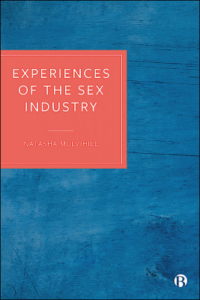Feminist methodology values life stories, and interviews are a powerful way of listening to lived experience. These conversations serve to ‘unsilence’ people, to create evidence and wider understanding and, ideally, to inform good policy and practice. In the fields of domestic abuse or sexual violence, for example, the weight of personal testimony, combined with the energy of campaigners over decades, have helped to bring material social change.
In research on the sex industry, however, individual stories are more contested. If the stories are not straightforwardly victim-survivor narratives, then writing about life experiences is sometimes criticised as responsibilising and individualising engagement in paid sex, consistent with ‘neoliberal thinking’. The concern is that this can undermine recognition of collective patterns of experience and the constraining weight of social power relations, such as gender and economics.
Structural analyses of power in society are of course essential, indeed inescapable. These macrolevel theories work by looking at the broad impact of social practices. Their explanatory command tends to hold fast over time, notwithstanding the contradictions, resistances and changing contexts at the individual level.
We still need to listen to people’s stories within more plural spaces – particularly in the sex industry. Here, however, lived experiences have become currency in a contentious debate about how paid sex squares with equality and justice. It is hard to hear the voices of those involved in paid sex outside the frames provided by the media, by campaigners, or indeed by academics.
During 2018–2019, I was part of a research team at the University of Bristol, commissioned by the Home Office, to report on the contemporary ‘nature and prevalence’ of prostitution and sex work in England and Wales. During the data collection phase, I conducted email interviews with more than 40 individuals engaged in selling and buying sexual services. This ran to more than 200 pages of data, which could only inform – and provide brief quotes for – the final report, published in October 2019. I was conscious of the generosity of time that people had put into their interviews, but also that this is already a chronically over-researched and over-consulted group: yet policy change in response to their concerns remains elusive.
I asked participants whether they would in principle be willing for me to combine their interviews into an anthology, and there was strong agreement. Of course, people involved in the sex industry do not need me or anyone else to publish their stories: they can do that themselves. And to secure a publishing contract, I needed to do more than just collect – I needed to provide commentary. But what did I want to say? Then March 2020 arrived, and COVID-19 lockdown.
In the event, I decided that this question about how researchers use interview data at a point in time, without necessarily having the opportunity to follow up with participants, would become the premise of the book. I contacted 31 of the original email interview participants (some of whom did not reply or no longer used that email) and secured consent from 18 both to publish their original narrative and to conduct a follow-up interview in Spring 2021.
For the second interview, I asked participants to reflect on what they had written in their first interview; what had changed for them since, including the impact of the pandemic; what it felt like to participate in the Home Office study and whether they felt that their voice and experiences were represented in the final report. It is rare indeed that as researchers we get to learn ‘what happened next’ for our participants. Similarly, I suspect, policy makers seldom have the opportunity to reflect on the personal impact on individuals who take part in policy consultations, and on how it feels to read your lived experience presented in an anonymised edited quote or a box case study in a government report.
The book is divided into female independent sex workers, male independent sex workers, managed brothel workers, erotic dancers and strippers, and sex buyers. Participants were also invited to read the final draft of the chapter to which they contributed, to query content and suggest edits.
The final book, Experiences of the Sex Industry, published by Policy Press in July 2022 does not offer any grand theory or polemic. That was not my aim. But it does provide the reader with extended first-person narratives of what it means for a selected group of individuals to be involved in the sex industry in the UK today. It explores the ethics of who speaks on this issue and who is heard; the nature of ‘participatory’ research; and the impact – and interplay – of public discourse with our internal narratives of selfhood. It raises questions about the enterprise of academic and policy-led research, particularly where some groups are periodically spoken to, but rarely see their words lead to material policy or legal change.
A policy briefing based on Experiences of the Sex Industry is available to download here.
Natasha Mulvihill is Senior Lecturer in Criminology at the University of Bristol.
 Experiences of the Sex Industry by Natasha Mulvihill is available on the Bristol University Press website. Order here for £80.00. Bristol University Press/Policy Press newsletter subscribers receive a 25% discount – sign up here.
Experiences of the Sex Industry by Natasha Mulvihill is available on the Bristol University Press website. Order here for £80.00. Bristol University Press/Policy Press newsletter subscribers receive a 25% discount – sign up here.
Individual chapters are available for purchase from Bristol University Press Digital. You can also ask your library to subscribe or sign up for a free trial.
Follow Transforming Society so we can let you know when new articles publish.
The views and opinions expressed on this blog site are solely those of the original blog post authors and other contributors. These views and opinions do not necessarily represent those of the Policy Press and/or any/all contributors to this site.
Image credit: Raphael Schaller on Unsplash


